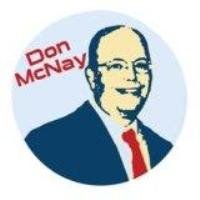Lottery Winner Outed
Gonna Take your mama out all night.
Yeah, we’ll show her what it’s all about.
Scissor Sisters

Babydaddy
Linville Lee Huff of
Bullitt County Ky. was outed.
The outing had nothing to do with his personal life. He wanted to be a closet Powerball winner but is now a public figure.
Huff was the winner of the December 12, Powerball Jackpot. He claimed the cash option of $16.8 million.
Mr. Huff had requested to the Kentucky Lottery that his winning ticket remain anonymous. Instead, Huff’s name was obtained by the Louisville Courier Journal and published after the Courier Journal made an open records request.
Linville Lee Huff will be forever be known as Linville Huff, Powerball winner.
Mr. Huff had good intentions about keeping his winnings quiet. He implemented those intentions poorly.
When the initial
story
broke about a Powerball winner
asking to stay anonymous, people contacted me and said, “whoever won the lottery must have read your book.”
I just published a book called: Son of a Son of a Gambler: Winners, Losers and What To When You Win the Lottery.
I tell people to protect to use trusts and corporations to protect their privacy.
Mr. Huff didn’t make it to my book signings.
I wish Mr. Huff had read my book. He would be enjoying his new fortune in private. He needed to find an advisor and attorney before rushing to cash the winning ticket.
A man who just got $16.8 million should have spent some of that cash on good advice. Any sudden millionaire, Powerball winner or not, needs to bring in expert consultants.
Huff could have avoided the mad rush of friends, strangers, charities and freeloaders looking for a piece of his money.
After the Courier Journal disclosed Huff’s name, some readers took umbrage with the newspaper. It was not the Courier Journal’s duty to help Mr. Huff protect his identity. They are not in the business of providing free advice to lottery millionaires.
The Courier Journal is a news gathering organization. Mr. Huff’s identity was news. Huff did not take proper steps to protect himself.
I wish all lottery winners wanted to stay out of the newspapers. Too many preen for the cameras, waving the check like they won a game show.
Mr. Huff needed to do more than to orally state his preference. He needed to set up a trust or corporation.
A lottery winner, who purchased a 2006 ticket near Cincinnati, won a $148.1 Powerball. The winner (or winners) set up a trust and a bank trust officer cashed the ticket. We don’t know who received the money.
As a test, I went to extensive lengths to see if I could identify the winner. I couldn’t. The trust officers did their job.
I wish Mr. Huff had found an attorney to plan and draft the proper documents.
Legal instruments and legal documents are important. That is why we have them.
If someone wants to give their third cousin their car at their death, they need to have a will. If they die without a will, state law will dictate how assets are divided.
Third cousins don’t make the list.
Families often battle when a family member die without a will. When I die, I have a will, trust and definite intentions for who gets what.
If my third cousin wants my car, he had better start sucking up now.
I’ve always offer lottery winners three tips: 1. Never let anyone know you have won. 2. Seek advisors before you cash a ticket. 3. Take the payments annually instead of the lump sum option. .
Huff did not follow any of the three rules. Powerball winners like Jack Whittaker and David Edwards have life stories that that make Britney Spears’s life look normal They have blown through millions and lived shattered lives.
It has been said that over 90% of lottery winners blow through their money. I hope that Mr. Huff is not one of them.
It wasn’t his mama that took Mr. Huff into the limelight. It was Huff’s failure to seek proper advice.
Don McNay is the author of Son of Son of a Gambler: Winners, Losers and What To Do When You Win the Lottery. He will be signing his book at Joseph Beth Booksellers in Lexington, Kentucky on Wednesday, January 16th at 7 pm. You can write to him at don@donmcnay.comThis e-mail address is being protected from spam bots, you need JavaScript enabled to view it or read other things he has written at www.donmcnay.com


